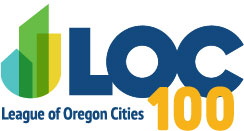LOC News
Urban Renewal Reform Legislation Close to Passage
HB 2174, an urban renewal reform bill, passed the House (58-1-1) and the Senate Finance and Revenue Committee (4-0-1) this week. The bill is awaiting a final vote in the Senate. Since 2017, the LOC, the Oregon Economic Development Association (OEDA), and city members have been meeting with education, county, and special district representatives in a work group to develop compromise legislation that preserves this key economic development tool, and improves communications and collaboration with taxing districts that overlap urban renewal districts. These overlapping districts do not receive their tax increment, and instead their property tax revenues are invested in urban renewal projects.
HB 2174 is a compromise product and achieves the work group objectives; there was no opposition testimony and represents best practice in the economic development industry. The bill improves transparency of urban renewal plans and projects, and provides clarity to key legal requirements and procedures.
The primary policy change requires concurrence of each “public building project” in a plan (term is defined in the bill) by at least three of the four taxing districts that are estimated to forgo the most property tax revenues with tax increment financing. Present law requires taxing districts to “consult and confer” with affected taxing districts regarding how projects serve or benefit the urban renewal area. However, overlapping districts have desired more of a voice in public building projects, as such projects use tax increment revenues but will not be recouped, as such buildings are exempt from property taxes. All projects remain authorized; however, certain projects will now require approval by the governing boards of three overlapping districts before they can proceed. The public buildings definition is narrow, but does cover such buildings as police stations, libraries, city halls. A public building is defined to not include such projects as transportation infrastructure, water or wastewater infrastructure, and park facilities.
For more details, see the bill or the LOC’s testimony. Note that existing urban renewal plan projects are grandfathered in and will not require concurrence. The bill will take effect 91 days after the Legislature adjourns.
Contact: Wendy Johnson, Intergovernmental Relations Associate – wjohnson@orcities.org
Last Updated 6-21-19

